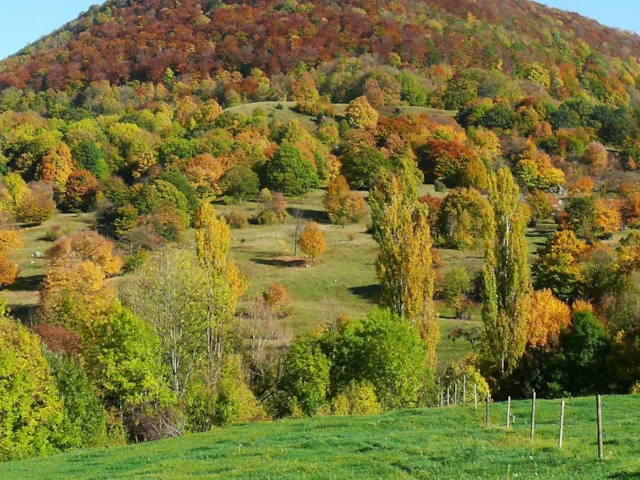EU environmental policy denounced by new report
433bc543-00a8-4b7b-bd83-248c0120191c

A report on the European environment released today comes to damning conclusions on the European Union's management and protection of its natural resources.
The State and Outlook Environment Report 2015 (SOER 2015) denounces the poor state of European nature, and demands a U-turn in current EU President Jean-Claude Juncker’s detrimental agricultural policies and his plans to weaken nature protection laws.
The SOER 2015 released today by the European Environment Agency sends a dramatic message of alert on the state of European nature. It sends a message to policy makers by stating clearly that EU legislation plays a crucial role in improving the environment but that much more needs to be done. It offers no backing for calls to deregulate environmental legislation, but rather points at the urgent need to fully implement the 7th environmental action plan (EAP). Furthermore, it makes a powerful case for setting even higher levels of ambition.
Ariel Brunner, Head of EU Policy at BirdLife Europe, said: "We hope that today’s report marks a new dawn and that the Commission will now up its game in terms of environmental ambition. President Juncker has started on the wrong foot, with the environment left out of its political guidelines and downgraded in its structure, and its first actions have been entirely focused on deregulation. European citizens desperately need a healthy environment, thriving nature and the prosperous green economy that can deliver both.
"The report sounds the alarm in particular about the dramatic loss of grassland biodiversity. This shows the consistent failure of the CAP (Common Agricultural Policy) to reward the delivery of public goods by farmers, an inexcusable lack of enforcement of the Birds and Habitats Directives in the farming sector, and the nefarious consequences of Europe’s perverse subsidies to energy crops for biofuels and biogas."
According to BirdLife Europe the key findings of the report on biodiversity are:
• A high proportion of species and habitats are in unfavourable conservation status, particularly those affected by agriculture. The report talks about dramatic loss of grassland biodiversity;
• The ability of soil to deliver ecosystem services is under increasing pressure. Observed rates of soil sealing, erosion, contamination and decline in organic matter all reduce soil capability. These findings clearly call for a coherent soil policy at EU level;
• Marine species and habitats are doing particularly poorly;
• Large scale challenges such as climate change and biodiversity loss can have potentially wide ranging, long term, irreversible effects on human health and wellbeing.
The State and Outlook Environment Report 2015 (SOER 2015) denounces the poor state of European nature, and demands a U-turn in current EU President Jean-Claude Juncker’s detrimental agricultural policies and his plans to weaken nature protection laws.
The SOER 2015 released today by the European Environment Agency sends a dramatic message of alert on the state of European nature. It sends a message to policy makers by stating clearly that EU legislation plays a crucial role in improving the environment but that much more needs to be done. It offers no backing for calls to deregulate environmental legislation, but rather points at the urgent need to fully implement the 7th environmental action plan (EAP). Furthermore, it makes a powerful case for setting even higher levels of ambition.
Ariel Brunner, Head of EU Policy at BirdLife Europe, said: "We hope that today’s report marks a new dawn and that the Commission will now up its game in terms of environmental ambition. President Juncker has started on the wrong foot, with the environment left out of its political guidelines and downgraded in its structure, and its first actions have been entirely focused on deregulation. European citizens desperately need a healthy environment, thriving nature and the prosperous green economy that can deliver both.
"The report sounds the alarm in particular about the dramatic loss of grassland biodiversity. This shows the consistent failure of the CAP (Common Agricultural Policy) to reward the delivery of public goods by farmers, an inexcusable lack of enforcement of the Birds and Habitats Directives in the farming sector, and the nefarious consequences of Europe’s perverse subsidies to energy crops for biofuels and biogas."
According to BirdLife Europe the key findings of the report on biodiversity are:
• A high proportion of species and habitats are in unfavourable conservation status, particularly those affected by agriculture. The report talks about dramatic loss of grassland biodiversity;
• The ability of soil to deliver ecosystem services is under increasing pressure. Observed rates of soil sealing, erosion, contamination and decline in organic matter all reduce soil capability. These findings clearly call for a coherent soil policy at EU level;
• Marine species and habitats are doing particularly poorly;
• Large scale challenges such as climate change and biodiversity loss can have potentially wide ranging, long term, irreversible effects on human health and wellbeing.

